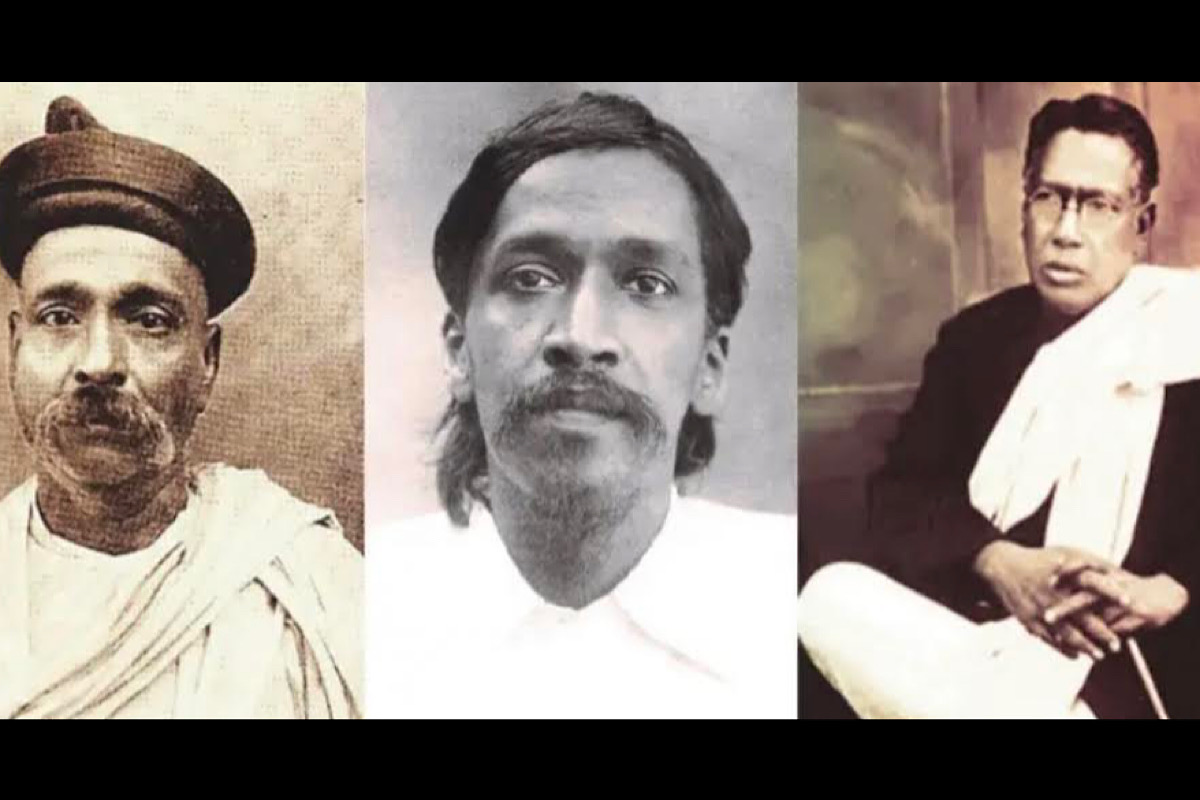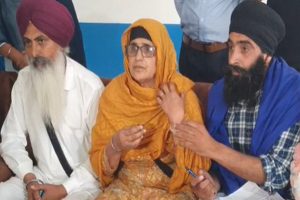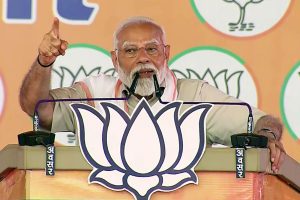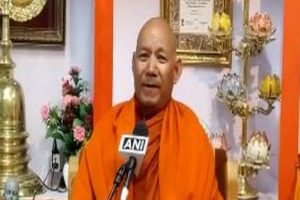The Partition of Bengal in 1905 sparked anti British struggles across the country, it seemed like an unprecedented storm of political activities radiating from Calcutta. Bal Gangadhar Tilak from Bombay Presidency, Aurobindo Ghose in Baroda state and Bipin Chandra Pal in Bengal Presidency found themselves at the frontlines of public agitations, processions, activities of secret societies and, of course, their sharply critical writings in newspapers, magazines both in English and regional languages. It was an upsurge shaking up the British establishment.
Though not reminiscent of the fury and violence of 1857-58, the widespread agitations now united revolutionaries, poets, writers, philosophers, and spiritual masters in the public eye. Our Republic is commemorating the 150th birth year of Sri Aurobindo Ghose, the 90th death anniversary of Bipin Chandra Pal, and the 103rd death anniversary of Bal Gangadhar Tilak. Long before 1905 the sharing of ideas and action plans between these three intellectual giants laid the foundations of our freedom struggle with clarity on the power of ‘Swaraj’, boycott of foreign goods, nationalism, and Sanatana Dharma. Aurobindo Ghose, the youngest of this triumvirate, was clearly the most revolutionary and radical in his writings and activism. Bipin Chandra Pal’s words, spelt out in ‘The Spirit of Indian Nationalism’, a 175-page book published by Hind Nationalist Agency in London, are worth recalling about ‘Sreejut Aravinda Ghose’ as he knew him.
“The youngest in age among those who stand in the forefront of the nationalist propaganda in India, but in endowment, education and character perhaps superior to them all ~ Aravinda seems distinctly marked out by Providence to play in the future of this movement a part not given to any of his colleagues and contemporaries,” he wrote in October 1910. “The other leaders of the movement have left their life behind them: Aravinda has his before him. Nationalism is their last love; it is Aravinda’s first passion. They are burdened with the cares and responsibilities of large families or complex relations: Aravinda has a small family and practically no cumulative obligations.
His only care is for his country ~ the Mother, as he always calls her. His only recognised obligations are to her. Nationalism, at the best, a concern of the intellect with some, at the lowest a political cry and aspiration with others, is with Aravinda the supreme passion of his soul. Few, indeed have grasped the full force and meaning of the nationalist ideal as Aravinda has done,” Pal’s words ring with the passion of a diehard nationalist, far away from the Motherland. Back home in Calcutta in 1909, Aurobindo Ghose, who had served a year-long prison sentence at Alipore, addressed a public meeting in Uttarpara where his tribute to friendmentor Bipin Chandra Pal is considered an intellectual gem; a speech that may be considered a metaphysical bridge over which he made the transition to becoming Sri Aurobindo.
He referred to Pal as ‘one of the mightiest prophets of nationalism’ as he spoke at the public library building. He said, “it was my intention to say a few words about the subject of Hindu religion. I do not know now whether I shall fulfil that intention; for as I sat here, there came into my mind a word that I have to speak to you, a word that I have to speak to the whole of the Indian Nation. It was spoken first to myself in jail and I have come out of jail to speak it to my people. It was more than a year ago that I came here last.
When I came I was not alone; one of the mightiest prophets of Nationalism sat by my side (the reference to Bipin Chandra Pal). It was he who then came out of the seclusion to which God had sent him, so that in the silence and solitude of his cell he might hear the word that He had to say. It was he that you came in your hundreds to welcome. Now he is far away, separated from us by thousands of miles. Others whom I was accustomed to find working beside me are absent. The storm that swept over the country has scattered them far and wide. It is I this time who have spent one year in seclusion, and now that I come out, I find all changed.”
He was referring to the aftermath of the Partition agitations and the large-scale clampdown on agitators. In simple words, Aurobindo Ghose explained to the audience the significance of divine realizations, when he said, “Bipin Chandra Pal came out of jail, he came with a message, and it was an inspired message. I remember the speech he made here. It was a speech not so much political as religious in its bearing and intention.
He spoke of his realisation in jail, of God within us all, of the Lord within the nation, and in his subsequent speeches also he spoke of a greater than ordinary force in the movement and a greater than ordinary purpose before it.” Having linked personal realization to a greater cause, he said, “Now I also meet you again, I also come out of jail, and again it is you of Uttarpara who are the first to welcome me, not at a political meeting but at a meeting of a society for the protection of our religion.
That message which Bipin Chandra Pal received in Buxar jail, God gave to me in Alipore. That knowledge He gave to me day after day during my twelve months of imprisonment and it is that which He has commanded me to speak to you now that I have come out. I knew I would come out. The year of detention was meant only for a year of seclusion and of training. How could anyone hold me in jail longer than was necessary for God’s purpose?
He had given me a word to speak and a work to do, and until that word was spoken, I knew that no human power could hush me, until that work was done no human power could stop God’s instrument, however weak that instrument might be or however small.” The metaphysical bonding between Bipin Chandra Pal and Aurobindo Ghose was made clear. The contentious question of what Hinduism is and what position Sanatana Dharma occupies is revealed to the Uttarpara audience.
“I realised what the Hindu religion meant. We speak often of the Hindu religion, of the Sanatana Dharma, but few of us really know what that religion is. Other religions are preponderatingly religions of faith and profession, but the Sanatana Dharma is life itself; it is a thing that has not so much to be believed as lived. This is the dharma that for the salvation of humanity was cherished in the seclusion of this peninsula from of old. It is to give this religion that India is rising.
She does not rise as other countries do, for self or when she is strong, to trample on the weak. She is rising to shed the eternal light entrusted to her over the world. India has always existed for humanity and not for herself and it is for humanity and not for herself that she must be great,” said Aurobindo Ghose making it clear that they were working for the benefit of all humanity. In his dialogue with divinity, Aurobindo sought answers and instructions. “I said, “Give me Thy adesh. I do not know what work to do or how to do it. Give me a message. In the communion of Yoga two messages came.
The first message said, ‘I have given you a work and it is to help to uplift this nation… go forth and do my work’. The second message came and it said, ‘Something has been shown to you in this year of seclusion… it is the truth of the Hindu religion. It is this religion that I am raising up before the world, it is this that I have perfected and developed through the rishis, saints, and avatars, and now it is going forth to do my work among the nations. I am raising up this nation to send forth my word. This is the Sanatana Dharma, this is the eternal religion which you did not really know before, but which I have now revealed to you’.” For Bipin Chandra Pal, Aurobindo Ghose was a leader chosen of God.
He said, “they are born leaders of men. Commissioned to serve special ends affecting the life and happiness of large masses of men, they bear a charmed life. They may be hit, but cannot be hurt. They may be struck, but are never stricken. Their towering optimism, and the Grace of God, turn every evil into good, every opposition into a help, every loss into a gain. By the general verdict of his countrymen, Aravinda stands today among those favoured sons of God.”
(The writer is a researcherauthor on history and heritage issues and a former deputy curator of Pradhanmantri Sangrahalaya)











